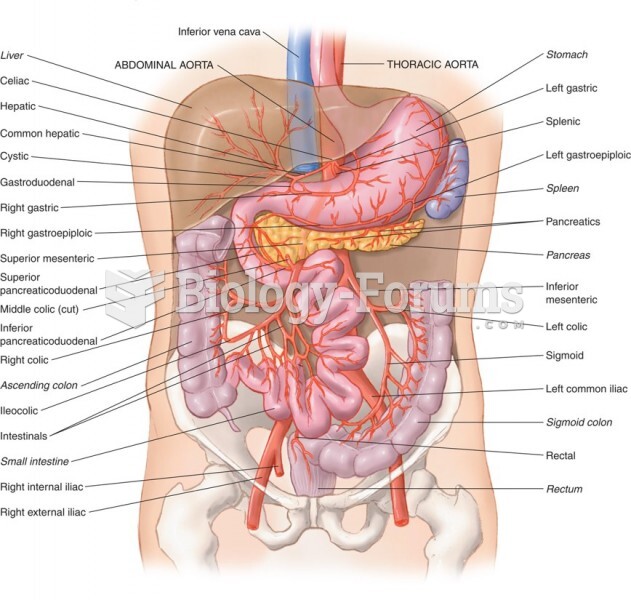|
|
|
The shortest mature adult human of whom there is independent evidence was Gul Mohammed in India. In 1990, he was measured in New Delhi and stood 22.5 inches tall.
Human neurons are so small that they require a microscope in order to be seen. However, some neurons can be up to 3 feet long, such as those that extend from the spinal cord to the toes.
Elderly adults are at greatest risk of stroke and myocardial infarction and have the most to gain from prophylaxis. Patients ages 60 to 80 years with blood pressures above 160/90 mm Hg should benefit from antihypertensive treatment.
More than 2,500 barbiturates have been synthesized. At the height of their popularity, about 50 were marketed for human use.
The Centers for Disease Control and Prevention (CDC) was originally known as the Communicable Disease Center, which was formed to fight malaria. It was originally headquartered in Atlanta, Georgia, since the Southern states faced the worst threat from malaria.
 Population predictions for 2000–2050, using three different total fertility rates (
Population predictions for 2000–2050, using three different total fertility rates (
 The postoperative client supports an incision with a folded pillow when taking a deep breath and cou
The postoperative client supports an incision with a folded pillow when taking a deep breath and cou
 A permanent epicardial pacemaker. The pulse generator can be placed in subcutaneous pockets in the s
A permanent epicardial pacemaker. The pulse generator can be placed in subcutaneous pockets in the s




